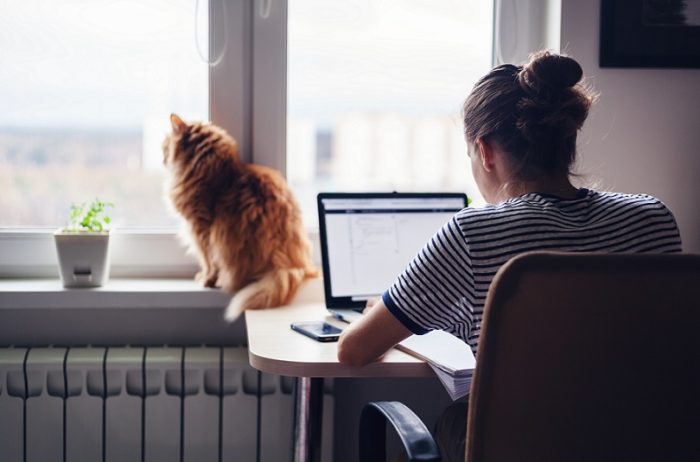Subscribe
The COVID-19 pandemic has changed the way we conduct our daily lives, including the way in which we work
When the Victorian State Government’s Stage 3 restrictions came into effect on 31 March 2020, all Victorians not working in essential services were required to work from home unless they were unable to do so remotely given the nature of their work. Many employers had to hastily move to implement working from home arrangements. However, these arrangements are being made without the opportunity for employers to ensure that usual processes and protocols surrounding remote work have been actioned.
Employers’ duty to employees who are working from home during COVID-19
Under Victorian work, health and safety (WHS) laws, employers have a duty to ensure, as far as reasonably practicable, the health and safety of their employees during the agreed working hours, even when employees are working from home.
When directing staff to work from home, employers need to consider what hazards employees may be exposed to at home and how these can be eliminated or minimised to protect health and safety.
In the current COVID-19 environment, this duty would also require employers to implement appropriate measures to minimise the risk of exposure to the COVID-19 virus.
At a minimum, this includes emphasis on use of extra hygiene measures and providing information to workers about the risks of the virus.
Ensuring a safe workplace at home
Where employers already have a working from home policy in place, this should be reviewed to ensure it meets current needs. It should be circulated to all staff prior to the commencement of them working from home and if this has not been done, then as soon as is possible.
Many businesses need to implement widespread working from home arrangements for numerous employees at very short notice. For them, the most practical measure for assessing the safety of home work environments will be asking staff to perform a self-assessment checklist. This helps to ensure that whilst working from home, employees are working in safe environments.
A self-assessment should cover the following:
• Workstation set-up
- ensure workers are educated about proper ergonomic practice and set up their workstation correctly
- provide appropriate office equipment
• Physical environment
- adequate ventilation
- temperate control (heating/cooling)
- appropriate lighting
- smoke detectors installed
- remove trip hazards, such as electrical cords
- accessible first-aid supplies
• Work hours and breaks
- Regular posture breaks
Providing guidance on what a safe home office environment should look like is an effective way for employers to meet their obligation to ensure the health and safety of their employees whilst working from home.
Other considerations for working from home during COVID-19
While staff work from home, it is important for employers to maintain frequent communication and provide regular updates on the workplace’s response to COVID-19, which will be constantly changing.
Employers also need to remember that they’re responsible for ensuring the mental, as well as physical, health of their employees, particularly during this COVID-19 period, but also on any occasions on which the employees work from home.
Further, employers should be conscious that the psychological impact of COVID-19 may be exacerbated where employees are socially isolated while working from home.
Employers should consider ways to keep employees connected, such as having regular telephone or video conferences, and providing access to employee assistance programs.
Our thoughts
Working from home isn’t ideal, especially when workplace safety issues are, to a degree, beyond your immediate control. As experienced workplace lawyers, we’re here to help you with practical advice to meet your legal obligations and to keep your employees safe during the COVID-19 pandemic.
Contact us to discuss your organisation’s working from home arrangements.
DISCLAIMER: We accept no responsibility for any action taken after reading this article. It is intended as a guide only and is not a substitute for the expert legal advice you can get from marshalls+dent+wilmoth and other relevant experts.
Subscribe




